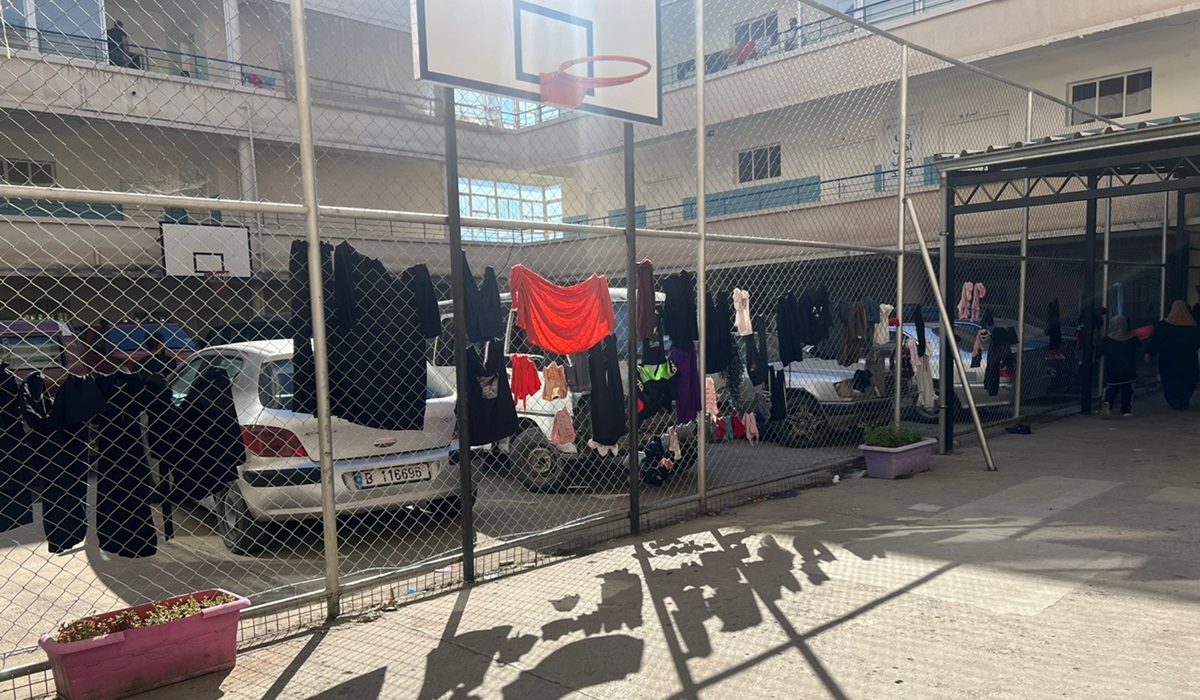Over 100,000 Flee Violence in Lebanon: Humanitarian Needs Reach Critical Levels
- Naomi Dela Cruz
- Middle East
- Trending
- September 27, 2024

Image Credit, NRC
As violence escalates between Israel and armed groups in Lebanon, the humanitarian crisis is deepening at a staggering rate, leaving tens of thousands of displaced people struggling to survive. Since Monday, nearly 120,000 people have been forced to flee their homes in Lebanon, joining the ranks of those already displaced by the conflict over the past month. The situation is dire, with entire villages deserted and civilian areas relentlessly targeted, creating a desperate need for immediate intervention.
Lebanon’s infrastructure is being pushed beyond its limits as over 75,000 people seek refuge in collective shelters—primarily schools— that are ill-equipped to handle such numbers. Families are crammed into classrooms without basic amenities like showers or adequate privacy, compounding the trauma they are already enduring. Children, in particular, are in urgent need of psychological support, but the resources to provide this help are sorely lacking.
As shelters reach full capacity, displaced families are now being turned away, with many seeking refuge in bus stops, their cars, or even outside hospitals, uncertain of where to go next. Some have crossed the border into Syria in a desperate bid for safety. Local Lebanese communities are opening their doors, but their efforts alone cannot meet the overwhelming demand for assistance.
The Norwegian Refugee Council (NRC) has been on the ground, providing essential items such as mattresses, blankets, and hygiene kits, but the rapid surge in displacement has far outpaced the resources available. “The local community is providing vast support, and our teams, many of whom are themselves displaced, are assisting those we can. Because so many people fled in just 48 hours, the needs far outstrip available capacity and preparedness,” said Maureen Philippon, NRC’s Country Director in Lebanon.
Despite the desperate need for aid, funding remains insufficient. Humanitarian organizations are calling for at least $170 million to sustain ongoing efforts and to scale up their response to the burgeoning crisis. With people fleeing with nothing more than the clothes on their backs, the urgent release of funds is essential to provide displaced families with basic necessities, including medication, food, and shelter.
The scale of the crisis is alarming. According to reports, 600 people, including dozens of children, have been killed in Lebanon since the escalation began, and over 1,700 have been injured. The toll on civilian life and infrastructure is devastating, with more than 78,000 internally displaced persons (IDPs) now housed in nearly 560 collective shelters across the country. In northern Israel, over 68,000 people have also been displaced since early October, further highlighting the far-reaching impact of the conflict.
The call for a ceasefire is growing louder as the humanitarian situation continues to deteriorate. “Civilian areas in Lebanon and Israel must not be targeted, and respect for international law from all sides is paramount. We need a ceasefire now before more lives are shattered,” Philippon emphasized.
The escalating crisis is not just a humanitarian catastrophe but also a grim reminder of the urgent need for international support and intervention. With so many lives hanging in the balance, the global community must act swiftly to prevent further tragedy and ensure that the basic human needs of displaced families are met.








